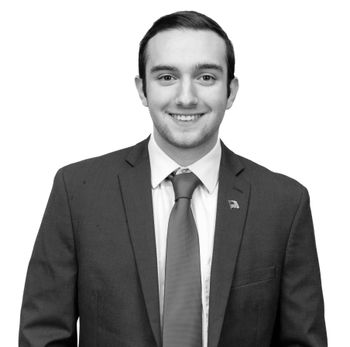Rutgers' plans for more CRT, Queer Theory are 'absurd,' 'divisive,' according to students
During a Rutgers University School of Social work meeting, department members outlined their plan to infuse 'anti-racism throughout all courses taught at Rutgers.'
'Campus Reform' spoke with students who expressed concerned over the university's plans to impose intersectionality and queer theory.
Rutgers’ IIDEA (Inclusion, Intersectionality, Diversity, Equity, Advancement) Committee hosted a meeting on August 25th to discuss their plans to “infuse these principles” of Critical Race Theory, Liberatory Consciousness, and Critical Consciousness “throughout all of our courses”.
The IIDEA Committee gave a presentation on Liberatory Consciousness, a term based on the work of Dr. Barbara Love, who wrote that “Whites are assigned to play the role of dominant and People of Color are assigned the role of subordinate in the system of dis-equality based on race.”
This meeting follows a trend of universities integrating anti-racism and Critical Race Theory throughout their entire curriculum, including classes that are not ostensibly or primarily about race.
[RELATED: Princeton profs want ‘repercussions’ for not hiring ‘faculty of color’]
The presenters laid out a plan to advance their vision for Rutgers, including: “Adding more content on Critical Race Theory, Queer Theory, and Intersectionality;” “Reviewing recruitment efforts and admission standards and practices;” and “Working to hire more BIPOC and LGBTQ persons to teach in the program.”
Panelist Jacquelynn Duron on the said, “Her (Love’s) framework is really important for helping us to consider how do we take the theory of critical consciousness and translate that into our actions?”
Critical consciousness is a concept “grounded in post-Marxist critical theory” that “includes taking action against the oppressive elements in one’s life that are illuminated by that understanding.”
”We’re really excited that Dr. Love will be joining us to provide trainings and we will be launching into applying liberatory consciousness to the various areas including the curriculum,” Duron said.
A main theme of this presentation was the infusion of these ideologies and principles throughout the entire curriculum, leaving no part of the school untouched.
Panelist Elsa Candelarlo said, “I don’t see IIDEA as being a committee that is holding a group accountable but rather pushing forth these concepts so that they can be infused, and I don’t think there’s any part of the school that’s been untouched by this work.”
”The Dean is very much behind this in asking faculty to identify where in the curriculum we’re finding these concepts of intersectionality, critical race theory, and others,” Candelarlo continued.
Shaina Fogarty, a student at Rutgers University, told Campus Reform, “I think the idea of Rutgers implementing more critical race theory, queer theory, and intersectionality, in the curriculum is a bit absurd.”
”These topics don’t aren’t applicable to every degree that’s offered and should not be a part of the core curriculum as they are both historically inaccurate, discriminatory, and assuming this cookie cutter style of race,” Fogarty continued.
Denny Maher, a student at Rutgers University, had similar reservations.
“To be frank, I don’t quite understand the necessity to teach Critical Race Theory at any university,” he said.
”It teaches kids to see race and to separate themselves from those of another race, something that many people fought long and hard to avoid, Maher said.” “I believe introducing more of this divisive ideology into universities is harmful due to its nature of putting blame onto others and holding them accountable for actions they had nothing to do with.”
Rutgers University has not responded to Campus Reform’s request for comment.

